Gerhard has some fine photographs of rose windows on this website.
I have been photographing rose windows for over 40 years and they still never cease to fascinate me.
|
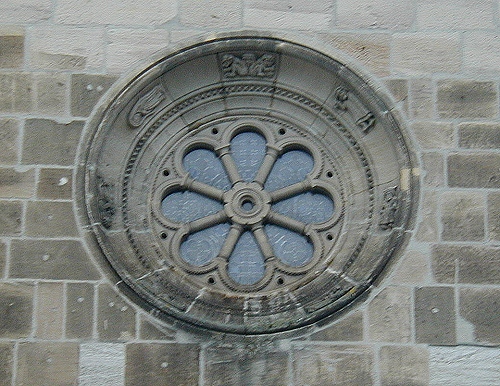
|
Many early Romanesque wheel windows are often carved with great intricacy;
the fine rose-wheel at Schwaebisch Gmuend is a good example of the type
|
|
Oculus windows that preceded wheels and roses never quite died out and some exotic examples can be found in the sixteenth and seventeenth centuries
|
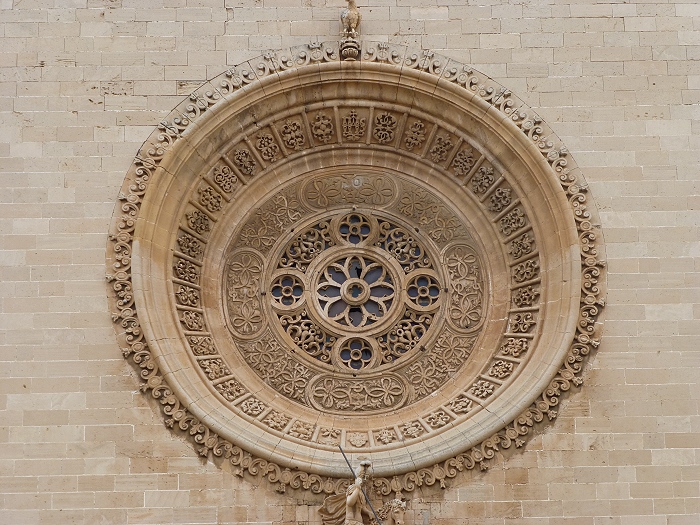
|
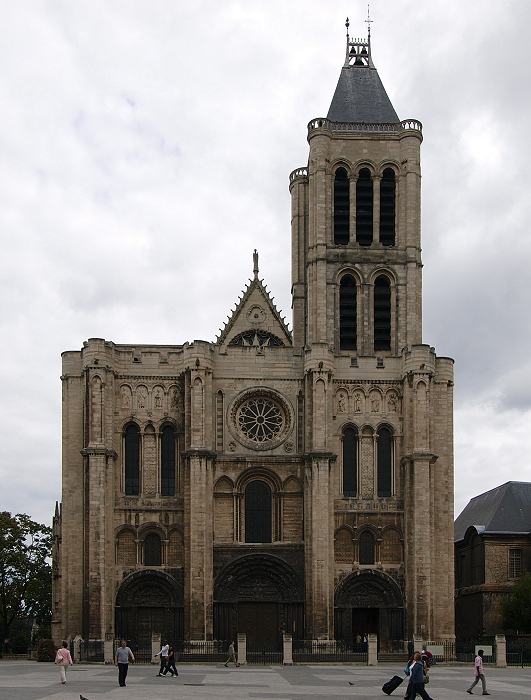
|
Rose windows began to be adopted in churches and cathedrals especially in northern France from the mid twelfth century. The west rose at St Denis is often cited as the first - it is certainly one of the earliest
|
|
The north rose at Laon is the earliest of the giant roses
|
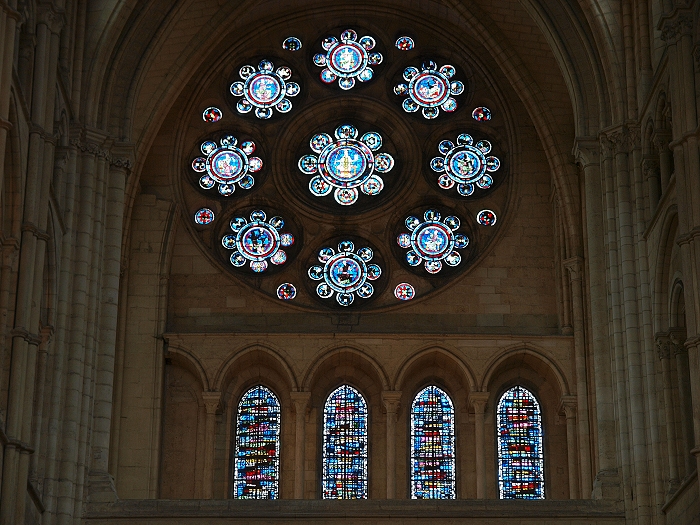
|
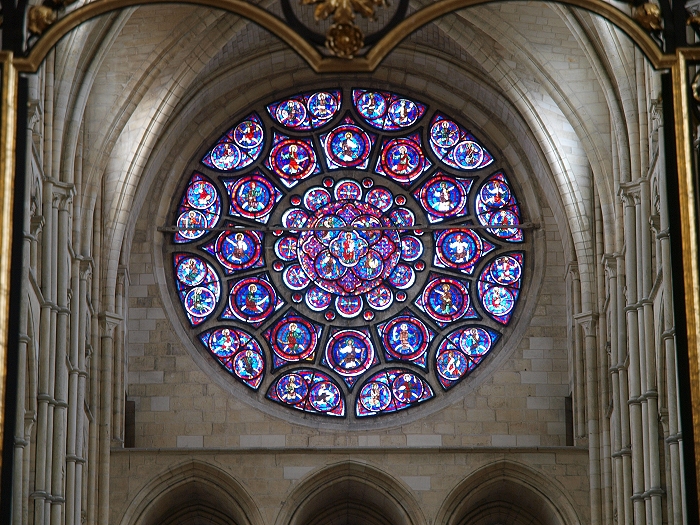
|
The beautiful east window with its much thinner tracery appeared soon afterwards
|
|
It is roughly contemporary with the great west window at Chartres
|
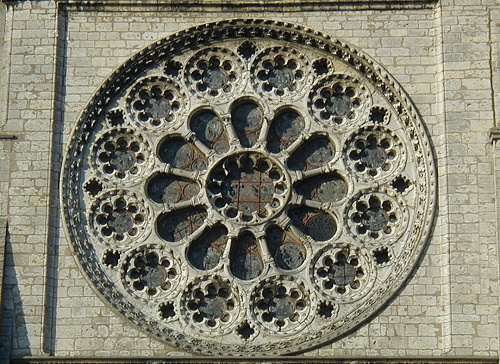
|
|
While the transept roses at Chartres were being built the abbey at St. Denis was developing the Rayonnant phase of the Gothic and this appears in the large transept rose windows of the abbey in the 1230s
|
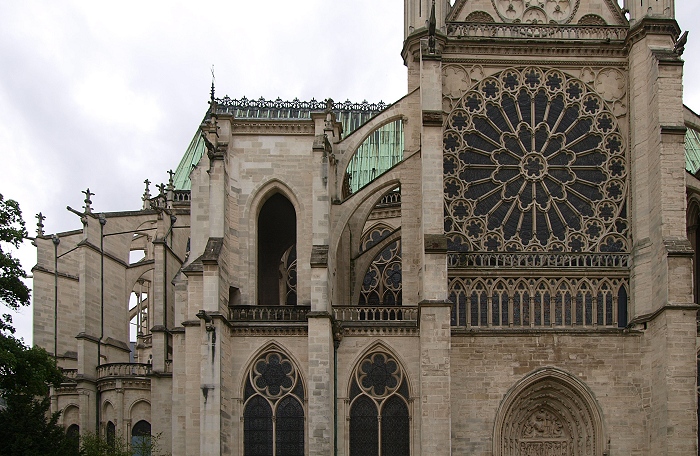
|
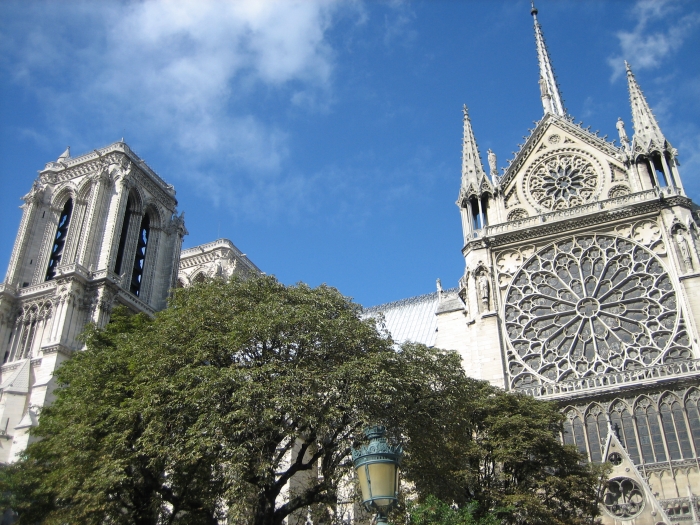
|
Rose windows in a similar style appeared at Notre Dame in Paris a few decades later but even bigger
|
|
This model became the favourite for large buildings and cathedrals, such as Tours cathedral and these examples of the mid thirteenth century represent the finest examples of the species
|
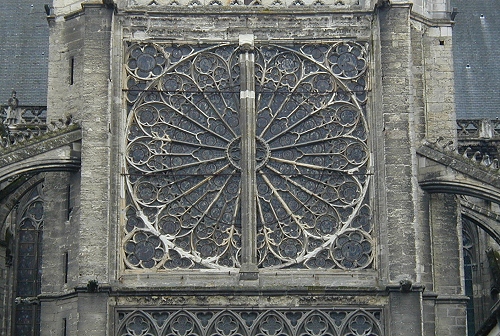
|
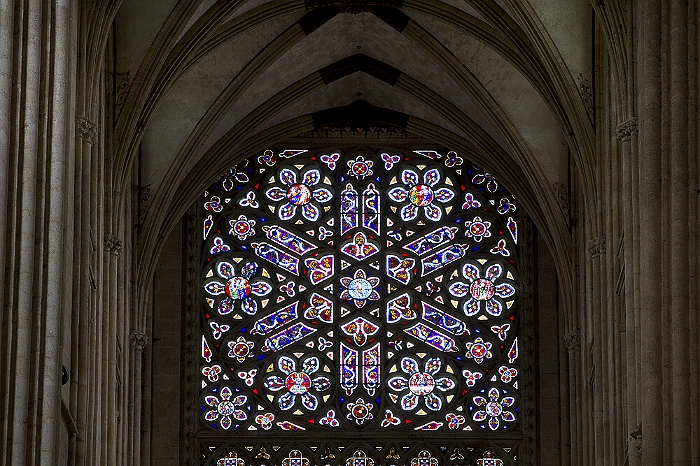
|
New designs appeared around the year 1300 such as the north rose at Sées
|
|
and at Magdeburg;
|
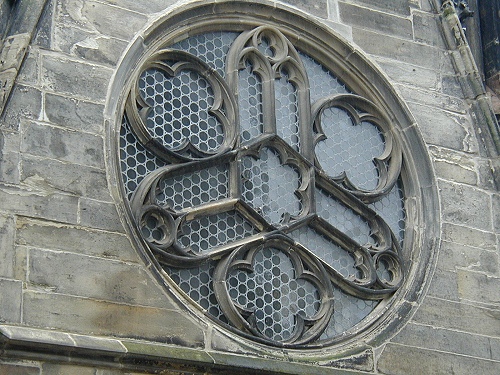
|
|
|
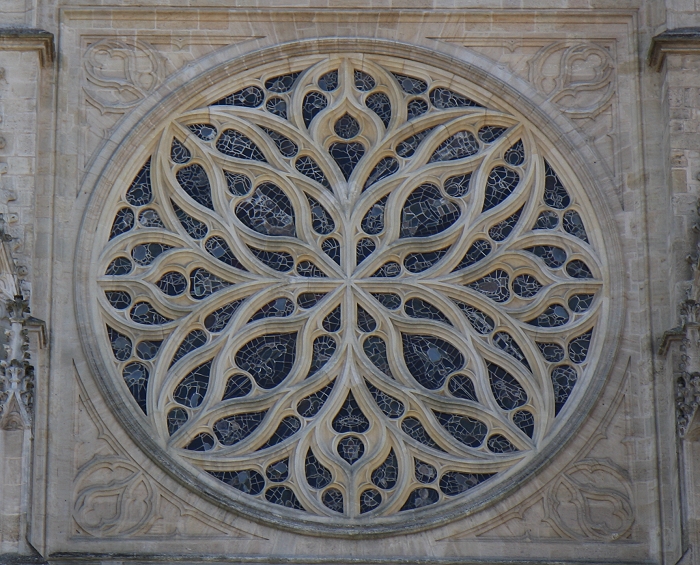
|
Windows thereafter evolve through the fourteenth century with intricate geometrical designs, then through the ever-curving Flamboyant in the fifteenth and sixteenth centuries.
(exlp: Bordeaux)
|
Thereafter some of the more adventurous windows take on an almost Baroque flavour.
In Majorca
there is a magnificent collection of rose windows created over the past 600 years or so
|
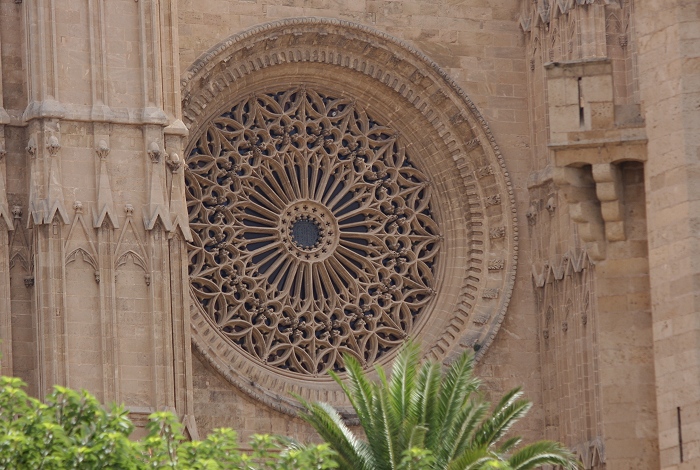
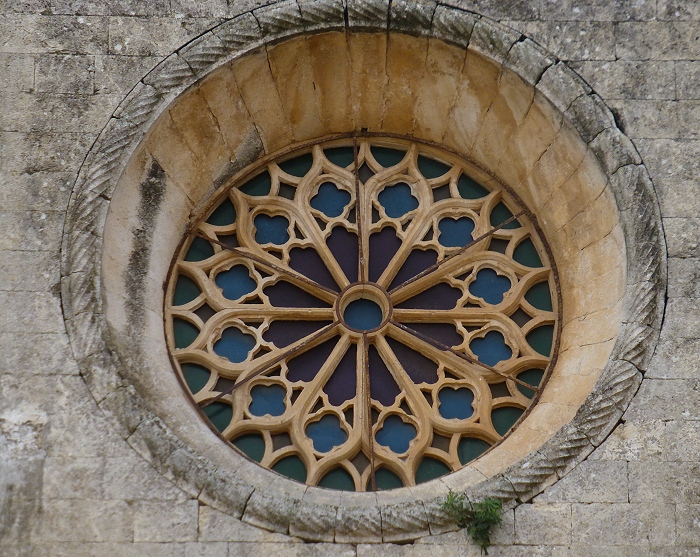
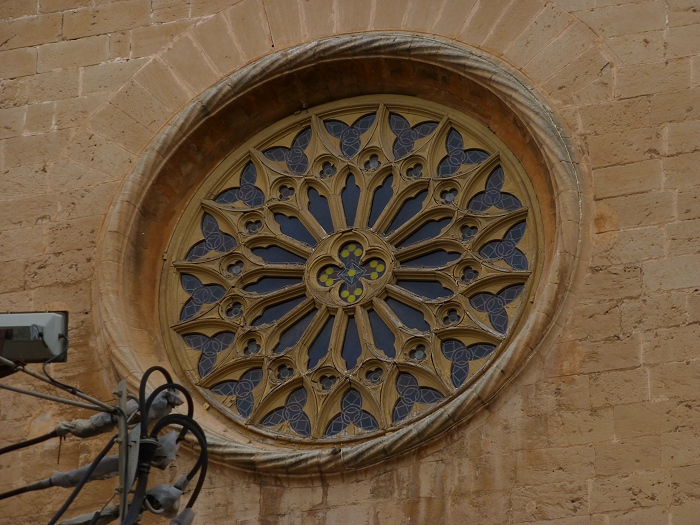
|
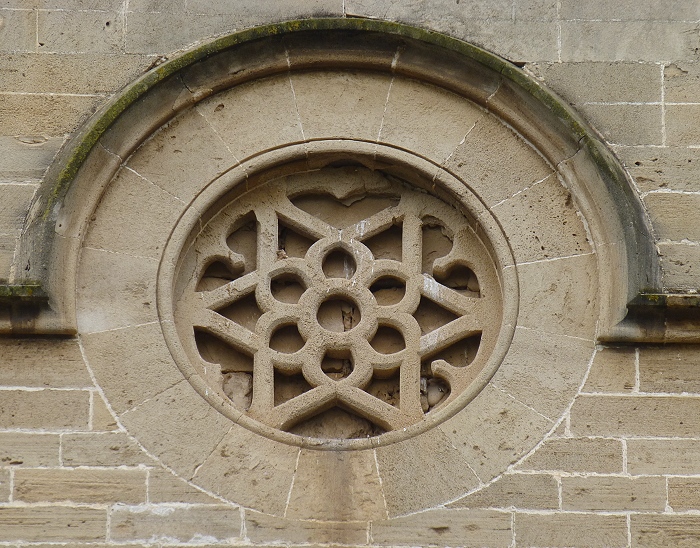
|
Some may be even older such as this rare plate tracery rose window in Majorca
|
|
In Italy the wheel theme is a favourite, as for example this beautiful rose at Orvietto
|
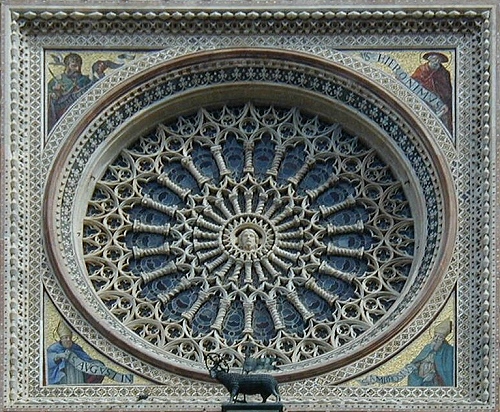
|
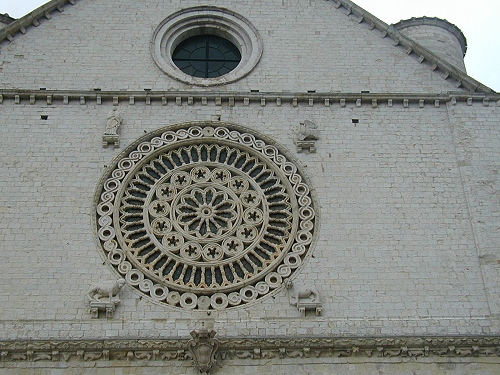
|
.... and at the church of St. Francis in Assisi.
|



